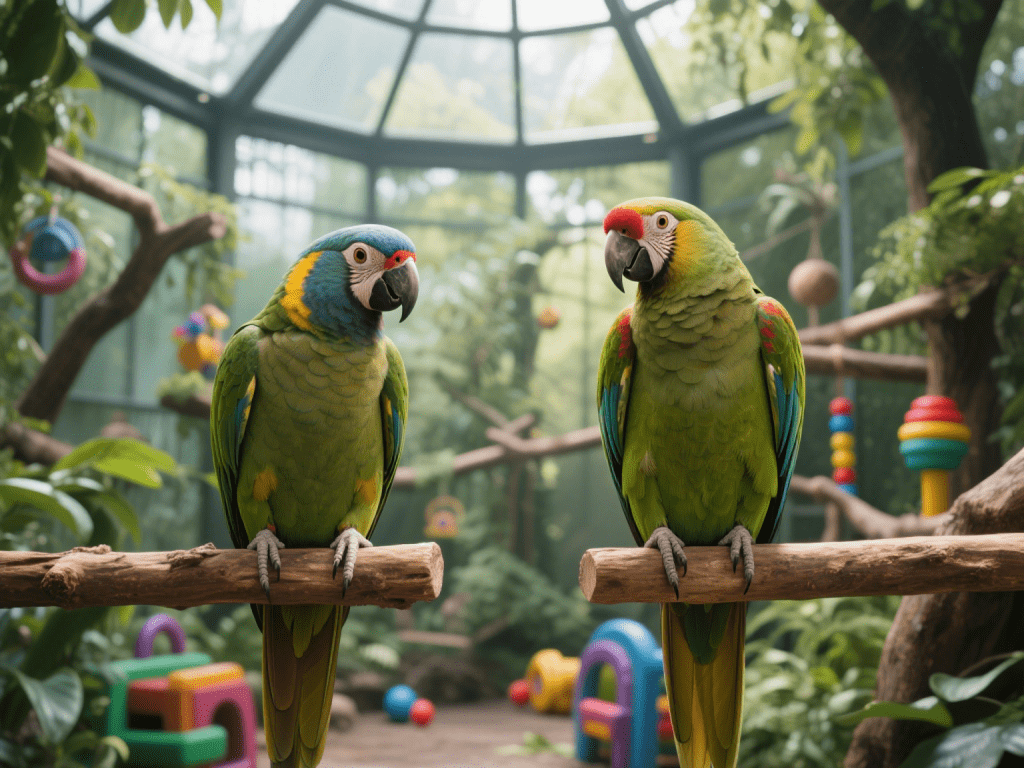
Transitioning Rescue Dogs to a Stable Home Environment
Rescue dogs often arrive with trauma from neglect or abandonment, manifesting as fear, res...

Managing more than one pet bird can bring double the joy—but also potential conflicts. After twelve years in an avian sanctuary where mixed‑species flocks thrive, I’ll guide you through structured introductions, territory management, and ongoing social enrichment to keep your feathered family safe and cohesive.
Species Temperament: Cockatiels are socially tolerant, while Eclectus parrots may be more territorial.
Individual Personality: Age, background, and past trauma influence sociability.
Resource Guarding: Food, perches, and toys can trigger aggression if not managed.
Isolate new arrivals for 30 days; screen for psittacosis and mites to protect resident birds.
Swap cage liners and place cages in adjacent rooms so birds hear and smell each other before seeing.
Position cages side‑by‑side at eye height; observe reactions for 3–5 days before next step.
Use a separate play stand or aviary—unfamiliar territory reduces territorial defense.
Supervise initial meetings; be ready to separate at first sign of aggression.
Increase supervised out‑of‑cage time together, starting with 10 minutes and adding 5 minutes daily.
Minimize resources: provide multiple identical feeding stations and perches.
Environmental Enrichment: Rotate toys and perches weekly to prevent resource fixation.
Parallel Training Sessions: Work one‑on‑one with each bird daily to reinforce positive behaviors.
Observe Hierarchies: Some flock peck orders form naturally; intervene only if chasing escalates to injury.
Persistent Aggression: Separate permanently or seek an avian behaviorist’s custom protocol.
Feather Plucking from Stress: Increase hiding spots and lower cage height to provide retreat.
Food Guarding: Hand‑feed both birds simultaneously in separate bowls to build trust.
Through careful quarantine, stepwise introductions, and vigilant resource management, you can create a peaceful multi‑bird household. With consistent enrichment and respect for each bird’s personality, your flock will flourish together—chattering, preening, and singing in harmony.

Rescue dogs often arrive with trauma from neglect or abandonment, manifesting as fear, res...

Grooming your dog at home isn’t just a money-saver—it’s an incredible bonding opport...

With headlines proclaiming the wonders of grain-free dog food, many pet parents wonde...

Dental health is often overlooked in dogs, yet it plays a vital role in their overall well...

IntroductionSelecting the right litter box is crucial for maintaining your indoor cat’s ...

Expert Dog Dental Care Tips: Keeping Your Dog’s Teeth HealthyDid you know 85% of do...
Comments on "Safe Socialization Practices for Multiple Pet Birds" :